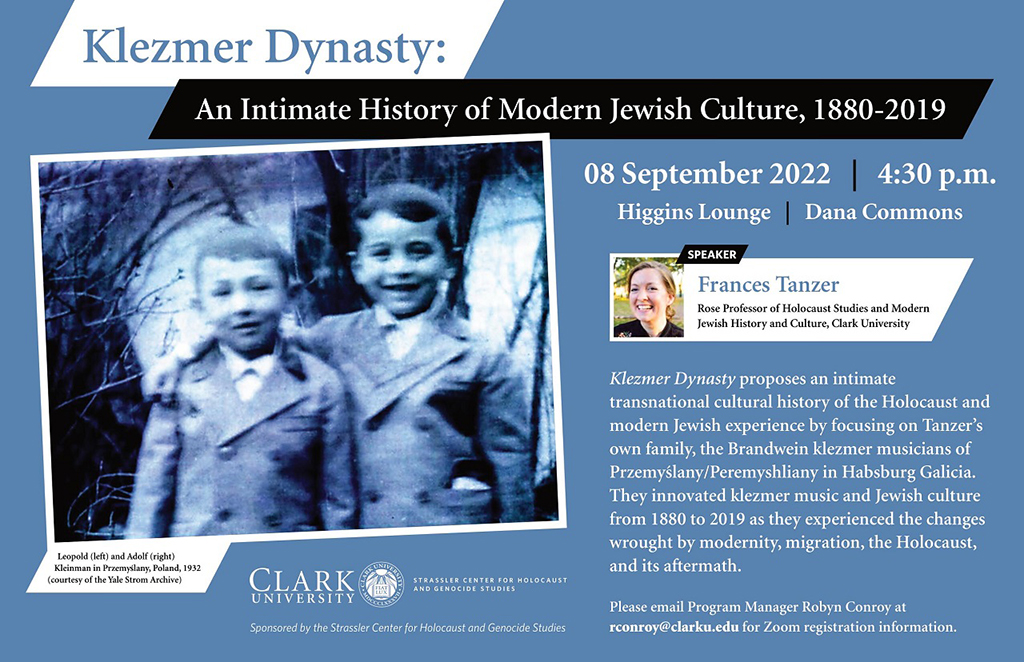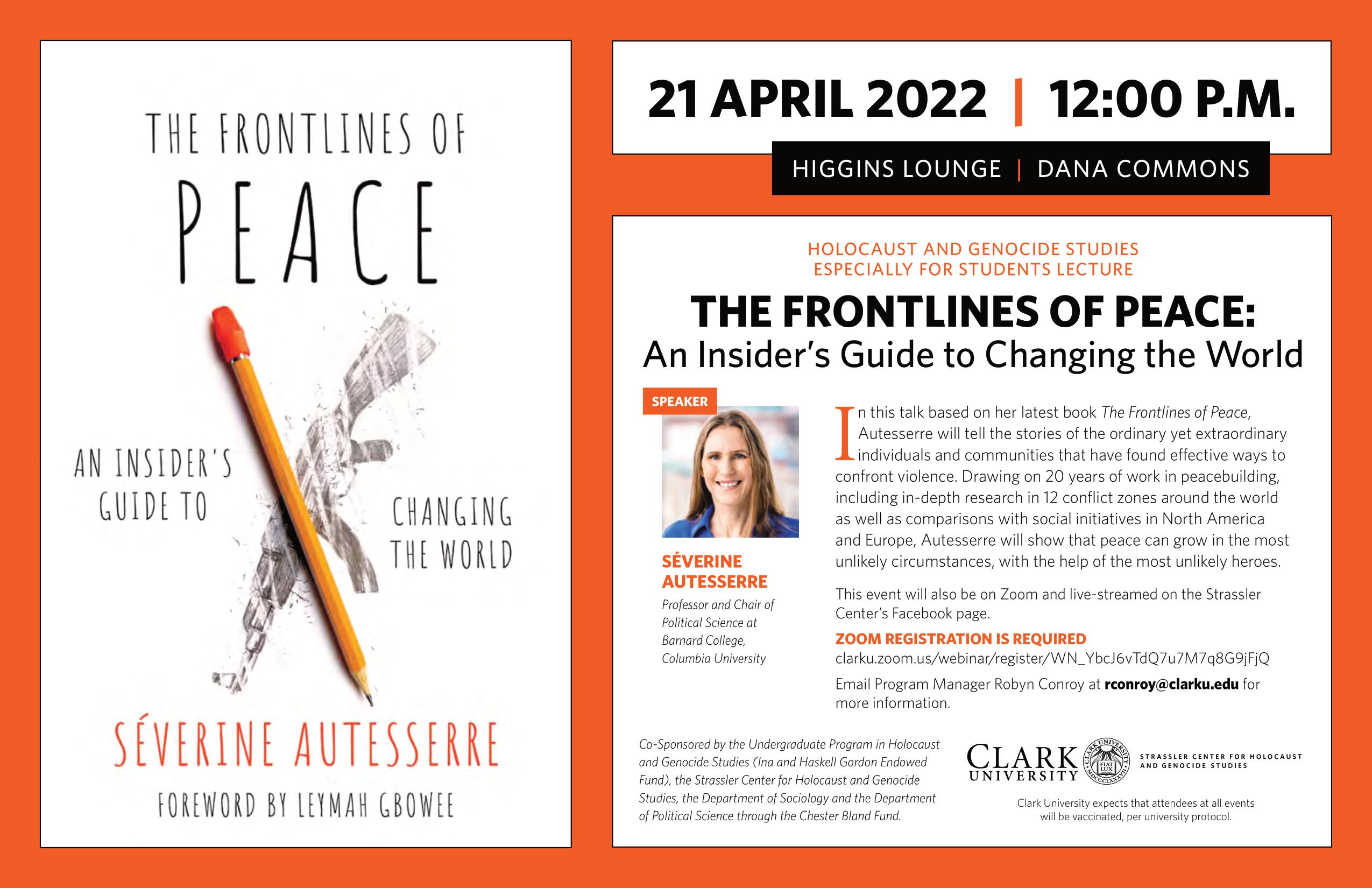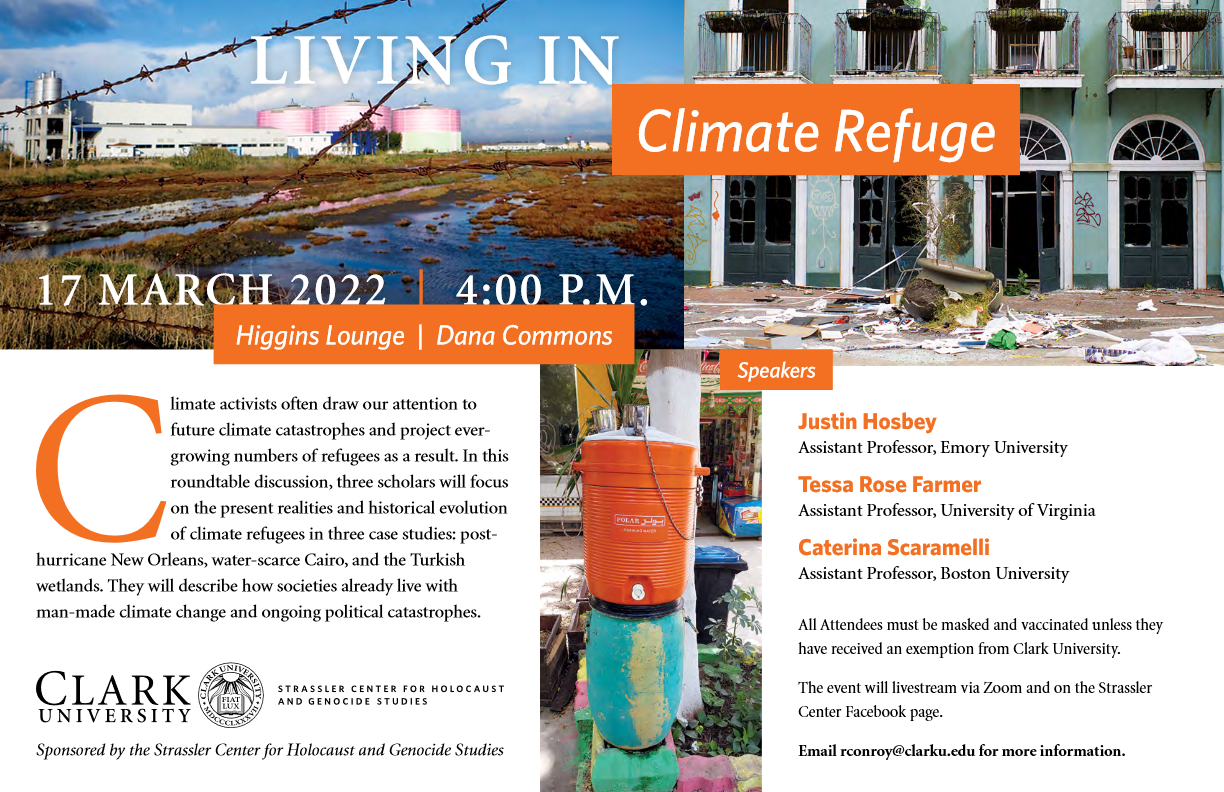Klezmer Dynasty: An Intimate History of Modern Jewish Culture, 1880-2019
Higgins Lounge, Dana CommonsFrances Tanzer, Rose Professor of Holocaust Studies and Modern Jewish History and Culture, will propose an intimate transnational cultural history of the Holocaust and modern Jewish experience by focusing on her own family.




